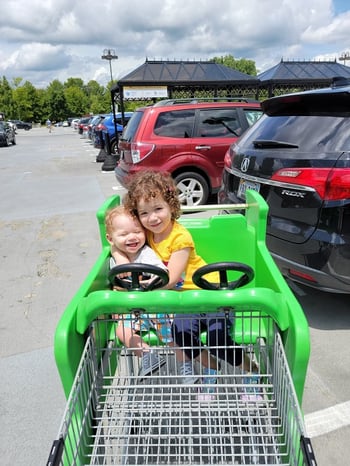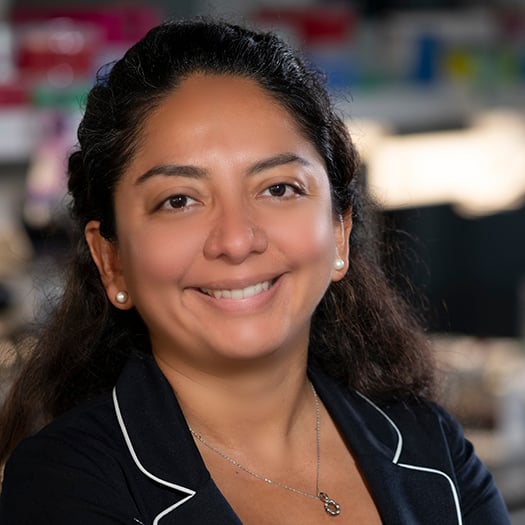
Jordan's Story

For the first two months of her pregnancy, Elizabeth Shapiro of Fairfax, Va., seemed to have a relatively normal pregnancy. She already had a healthy 3-year old daughter, Jessica, who was born without significant complications. But when her ultrasounds for her second pregnancy began revealing several rare complications at once, her pregnancy abruptly shifted from typical to what she describes as terrifying.
“It is terrifying to know something is wrong with the baby inside of you but not be sure what is going on because the tests are all prenatal, or not 100 percent accurate,” Elizabeth said. “It is a helpless feeling.” Ultrasound images showed what looked like a cyst or pocket in the brain’s vermis, which could indicate a possible congenital abnormality, and though blood tests indicated the baby was female, further tests indicated a male carrier type and possible complications. Because of the complex test results, her medical team referred Elizabeth to Children’s National Hospital experts at the Prenatal Pediatrics Institute and the Positive Reevaluation of Urogenital Differences (PROUD) Clinic, which provides specialized diagnostic, evaluation, and treatment services for children with a variety of rare and complex diseases. Though prenatal tests did not immediately reveal an underlying cause, the team at Children’s National continued to closely monitor Elizabeth. On March 18, 2020, Jordan Shapiro was born early at 35 weeks with complications including a brain bleed and low muscle tone.
“Once Jordan was born, we continued to do genetic testing at Children’s National trying to figure out how all these separate, seemingly random sets of symptoms were connected,” Elizabeth said. “We knew they were connected, we just didn’t know how.” Jordan required his first of two hypospadias repair surgeries in October 2020, and around that time genetic testing through Children’s National’s Rare Disease Institute revealed the answer the medical team and the Shapiro family had been seeking.
“Jordan had a rare genetic disorder, 16p11.2 duplication, meaning a small amount of genetic material in his chromosome 16 was copied. This extra piece on his DNA could explain his symptoms,” said Eyby Leon Janampa, M.D., an expert in rare and new genetic conditions. “The presentation associated with 16p11.2 duplication syndrome demonstrates significant clinical variability such that carriers may be unaffected or mildly affected,” she said. Dr. Leon said genetic conditions like Jordan’s can be difficult to identify and requires experts like those at the Rare Disease Institute to carefully analyze the patient’s symptoms and compare them to other documented cases. Another challenge for patients like Jordan is that genetic testing is not widely available. Because Children’s National is uniquely equipped and has a molecular laboratory on-site, along with an entire team of geneticists, genetic counselors, and other specialists working together, patients have better access to cutting-edge genetic testing and treatment.
“Patients with rare genetic anomalies will need to see a geneticist many times for months, so it is a significant benefit for our patients that everything they need can be done here at Children’s National,” Dr. Leon said. For patients requiring testing during the COVID-19 pandemic, Children’s National was also on the leading edge of providing telemedicine visits so patients could continue accessing the best medical experts. In Jordan’s case, it became important that his family had genetic testing to understand how best to help Jordan. Both Elizabeth and her husband, Mike Shapiro, as well as their daughter, Jessica, were tested. Mike’s and Jessica’s tests revealed they both had the same 16p duplication. As the Shapiro family learned more about 16p11.2 duplication, they saw puzzle pieces in their family history fall into place.
“Jessica needed help learning to crawl as a baby, but was otherwise fine. But Mike has overcome a lot of challenges in his life,” Elizabeth said. Mike has dystonia, a movement disorder that causes involuntary muscle contractions, that went undiagnosed throughout his childhood. After many doctor visits, he used a wheelchair for part of his life and ultimately had a neurostimulator implanted in his brain and chest. He was also at risk for the familial BRCA2 gene mutation and received genetic counseling support through Children’s National.
“My husband has had some challenges over the years, but is walking now, is highly intelligent, and has led a successful IT consulting career. He did all of that with a highly variable genetic illness, and when we look back, we see threads of this running through our family,” Elizabeth said. Jordan’s symptoms are complex, and knowing their family diagnosis of 16p duplication means they could face possible challenges in the future. As the Shapiro family underwent testing, Elizabeth said the team at Children’s National was there for them in ways they needed them most.
“Rare diseases and genetic disorders are tough for families. There’s no false hope that it is all OK. But even when it is tough, the team surrounding you at Children’s National is working their hardest with the best resources in the country to help you make the best decisions for your family in the future. Dr. Leon and Daniel Casella, M.D., and our entire team of genetic counselors and navigators are the best in the country, end stop. And there is a lot of comfort as a parent in knowing you are doing what’s best for your family.” Though Jordan’s genetic condition cannot be reversed, he is overcoming challenges through his surgeries and early intervention services. Today, Elizabeth describes him as a crawling, happy baby. The Shapiro family, Dr. Leon said, demonstrates that people with rare and genetic conditions can lead full lives, and also entire families can benefit from early testing that will inform future decisions, early intervention, and treatment.
“Children’s National is such a wonderful place,” Elizabeth said. “Our doctors just care so much. I have their email addresses and they get back to me anytime I need them. They are there to share in our victories and our challenges,” she said. If there is something she hopes other families with genetic conditions can take from her experience, she said, it is to take comfort in knowing they are doing what is best for their family when seeking answers.
“Genetic conditions and rare diseases are nobody’s fault,” Elizabeth said. “I know I am doing the best thing for my family because we have the best care team in the world.”


